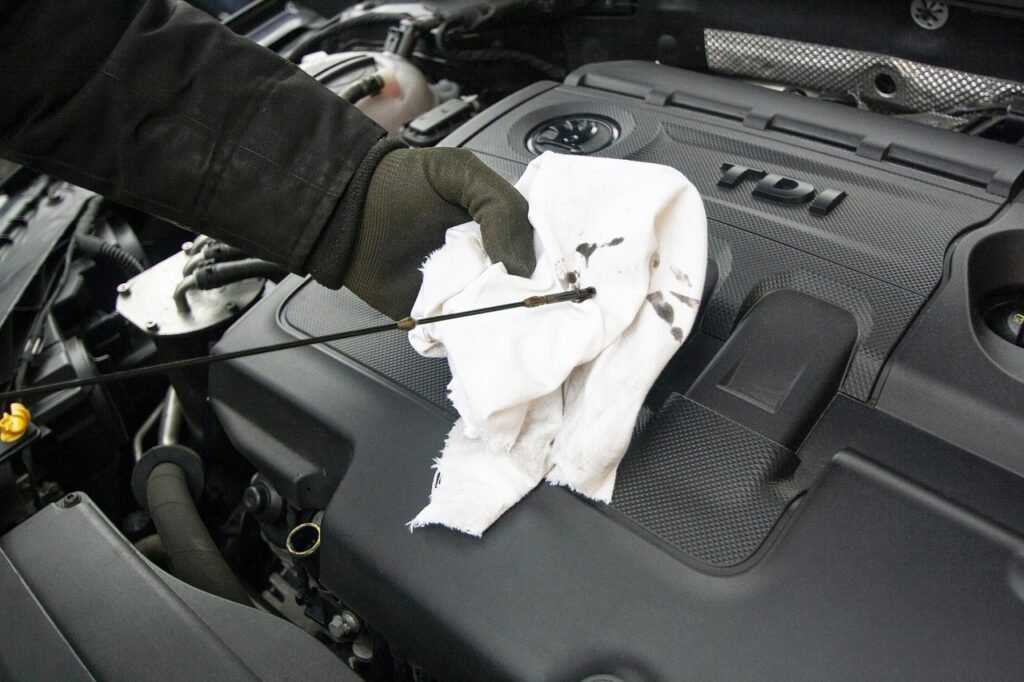Oil Volatility and Evaporation: What You Lose When Oil Gets Too Hot?
Motor oil operates in an incredibly demanding environment. As your engine runs, temperatures inside can easily exceed 200°C (392°F), especially around pistons and turbochargers. While oil is designed to handle these conditions, not all formulations respond the same way—especially when it comes to volatility.
So what is oil volatility, and why should you care? The answer could determine how well your engine is protected—and how often you need to top off your oil.
🔥 What Is Oil Volatility?
Volatility refers to how easily a liquid turns into vapor. In the case of motor oil, high volatility means the oil evaporates faster under heat. This is especially true for lighter, more unstable molecules that make up some lower-quality base oils.
When oil molecules evaporate:
The total oil volume in the engine decreases
The remaining oil becomes thicker (increased viscosity)
Deposits may form on pistons and valves
Oil consumption increases
Emission systems may suffer from oil vapor contamination
📉 How Volatility Is Measured
The industry standard test for oil volatility is the NOACK Volatility Test (ASTM D5800). In this test, an oil sample is heated to 250°C (482°F) and exposed to air for one hour. The percentage of oil that evaporates during this time is measured.
Lower volatility (% loss) = better thermal stability
Premium oils typically show a volatility loss of <10%
Oils with poor base stocks may exceed 15% loss or more
This test simulates what happens inside your engine, particularly under heavy loads or hot climate conditions.

🚗 Real-World Effects of High Volatility
Oil with high volatility might seem fine during everyday use, but it leads to gradual performance loss and increased maintenance:
Increased oil consumption: You may need to add oil between changes.
Deposit formation: Evaporated oil contributes to piston ring deposits and valve clogging.
Higher emissions: Oil vapor can be burned in the combustion chamber, leading to carbon buildup and increased exhaust pollutants.
Reduced fuel economy: Heavier, oxidized oil creates more resistance inside the engine.
Turbocharger stress: Turbochargers operate at extreme temperatures and are especially vulnerable to oil film breakdown from volatile oils.
🛡️ How to Reduce Oil Loss from Volatility?
Choose oils with low NOACK values: These oils use more stable base stocks that resist evaporation.
Look for synthetic formulations: True synthetics (especially Group IV PAOs) have very low volatility due to their uniform molecular structure.
Avoid extended high-RPM driving with conventional oil: It increases oil stress and accelerates evaporation.
Follow the manufacturer’s oil grade and change intervals: Even the best oil degrades over time if not changed properly.
Check oil levels regularly: Especially in hot climates or under heavy towing conditions.
✅ Final Thought
Volatility may not be the first thing drivers think about—but it directly affects oil consumption, engine cleanliness, and long-term reliability. High-performance oils are engineered to resist evaporation, maintain consistent viscosity, and protect critical engine components—even under extreme heat.
Understanding and managing oil volatility isn’t just science—it’s smart engine care.

